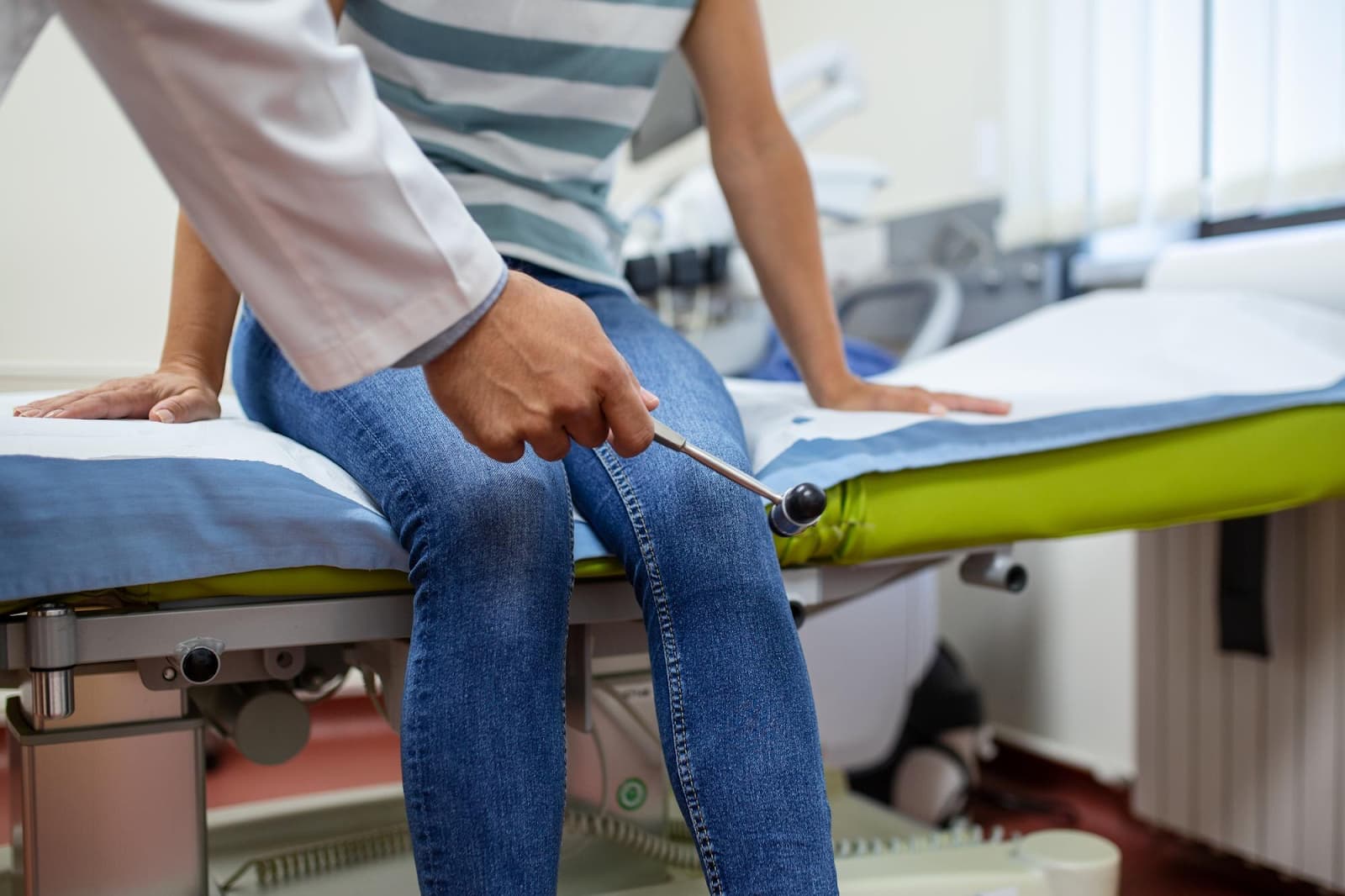As the field of medicine continues to advance and evolve, so too does the role of a physician assistant (PA). One area in which PAs are making a significant impact is in the field of orthopedics. With the growing demand for specialized care in musculoskeletal conditions, the need for qualified and knowledgeable orthopedic PAs has also increased.
In this article, we will delve into the various aspects of being an orthopedic PA, including their job responsibilities, education and training, salary and job outlook, as well as the benefits and challenges of this profession. Whether you are considering a career as an orthopedic PA or simply want to learn more about this vital healthcare role, this comprehensive guide will provide you with all the information you need.
Physician Assistants in Orthopedics: A Deep Dive into Their Role and Responsibilities
In the realm of orthopedic medicine, Physician Assistants (PAs) perform an integral role within the medical team, working closely under the guidance of orthopedic surgeons. Their tasks stretch across a broad spectrum – from conducting physical examinations, interpreting diagnostic tests, to prescribing medications, and assisting in surgical procedures. PAs in orthopedics function across varied healthcare settings, including both inpatient and outpatient facilities.
Let’s delve deeper into the key responsibilities of orthopedic Physician Assistants:
Key Tasks of Orthopedic PAs
- Patient Examination: Conducting comprehensive and focused history and physical examinations to gather patient information;
- Diagnostic Interpretation: Evaluating laboratory results and diagnostic procedures to establish a preliminary diagnosis;
- Therapeutic Intervention: Developing and implementing treatment plans for specific conditions;
- Diagnostic Procedures: Ordering and performing various diagnostic procedures, such as:
- Electromyography (EMG);
- Electrocardiogram (EKG);
- Compartment pressure measurements;
- X-ray examinations;
- Advanced imaging techniques, including Computed Tomography (CT), Magnetic Resonance Imaging (MRI), and bone scans.
- Minor Outpatient Procedures: Performing minor procedures including:
- Hardware removal;
- Incision and drainage;
- K-wire removal;
- Percutaneous pinning of fractures;
- Tendon repair;
- Wound closure and debridement;
- Needle biopsy;
- Wound management.
- Therapeutic Procedures: Performing orthopedic procedures like:
- Brace, cast, and splint applications;
- Closed reduction of fractures and dislocations;
- Injection of joints;
- Joint and bursa aspirations;
- Tendons, trigger points, and bursa treatment.
- Surgical Assistance: Assisting in surgical procedures, as delegated by the surgeon;
- Patient Education and Counseling: Evaluating, screening, and educating patients about health maintenance and promoting the utilization of community resources;
- Hospital Rounds: Conducting post-operative rounds, writing orders, and performing admission and discharge work in the hospital.

Unraveling the Journey to Becoming an Orthopedic Surgery Physician Assistant
The pursuit of becoming an expert Physician Assistant specializing in orthopedic surgery is a gratifying journey that entails a profound commitment to comprehensive education and dedicated training. Adhering to a step-by-step process, it commences with undertaking an accredited Physician Assistant program and evolves into pursuing a specialized residency in orthopedics.
The Commencement: Physician Assistant Programs
The first step in this journey requires enrolling in a Physician Assistant program accredited by the Accreditation Review Commission on Education for the Physician Assistant. Prior to this, a bachelor’s degree is mandatory, along with a minimum of two years’ worth of college-level coursework in foundational and behavioral sciences.
The Physician Assistant program typically spans around 27 months and introduces students to a rigorous, competency-centered curriculum that balances theoretical knowledge with practical clinical exposure. A significant component of the program involves a minimum of 2,000 hours dedicated to clinical rotations. Aspiring Orthopedic Surgery Physician Assistants are advised to opt for an elective rotation in orthopedics to gain invaluable hands-on experience.
The Licensing: Physician Assistant National Certifying Examination
After successfully completing the PA program, graduates must take the Physician Assistant National Certifying Examination (PANCE). On passing the PANCE examination, graduates can apply for a state license to practice as a Physician Assistant.
The Specialization: Post-Graduate PA Programs
Having obtained their licenses, newly-minted Physician Assistants can choose to join post-graduate PA programs. This pivotal step allows them to delve deeper into their chosen specialty, reinforce their learning and start their professional journey. Typically lasting around 12 months, these programs offer a blend of didactic and clinical training.
Residents of post-graduate PA programs focusing on orthopedics can expect to gain a multifaceted understanding of several domains within orthopedics. Providing ample opportunities to hone their skills, these programs offer ample exposure to the evaluation, treatment, and ongoing management of orthopedic problems.
In-Depth Experiential Learning: Clinical Rotations
Clinical rotations form the core of post-graduate residency programs, enveloping various sub-disciplines within orthopedics such as:
- Total joint surgery;
- Spine surgery;
- Sports surgery;
- Hand surgery;
- Foot and ankle surgery.
These rotations not only create a platform for diverse learning but also allow residents to actively participate in clinics, inpatient care, and surgical processes across each rotation. The ultimate aim is to mold residents into expert first-assistants within the operating room.
Enhancing Skills and Broadening Horizons
A distinct level of recognition and validation awaits Physician Assistants specializing in orthopedic surgery who strive to further enrich their expertise. One such pathway is the Certificate of Added Qualifications (CAQ) in Orthopedic Surgery, offered by the National Commission on Certification of Physician Assistants (NCCPA). This esteemed certification serves as a testament to the specialized skills and advanced knowledge the holders possess in the realm of orthopedic medicine.
The Road to CAQ in Orthopedic Surgery
To attain the CAQ in Orthopedic Surgery, a few vital prerequisites are mandatory:
- Holding an active PA-C designation;
- A valid, unrestricted license to practice as a physician assistant in one or more U.S. jurisdictions;
- A minimum of two years of professional experience;
- Possession of a Category I specialty Continuing Medical Education (CME).
The procedures include:
- Anesthesia;
- Advanced wound management;
- Compartment pressure management;
- Diagnostic and therapeutic needle aspiration and injections;
- Diagnostic radiography and other modalities;
- Fracture and dislocation management;
- Operative and preoperative care.
Amplifying Growth with Professional Resources
Joining professional organizations like the Physician Assistants in Orthopaedic Surgery (PAOS) can be immensely beneficial for certified and licensed PAs specializing in orthopedic surgery. PAOS is dedicated to enhancing the scope of knowledge of its members in musculoskeletal healthcare within the physician-led paradigm.
Membership in PAOS brings along several advantages:
- Access to Continuing Medical Education (CME) in orthopedic and musculoskeletal healthcare care;
- A platform for interaction and networking which facilitates information dissemination and job placement;
- Regular updates on changes in legislation, certification, training, and education for physician assistants.
Other professional associations that may be beneficial for PAs specialized in orthopedic surgery include:
- American Association of Surgical Physician Assistants;
- American Academy of Orthopaedic Surgeons;
- American Orthopaedic Association;
- American Orthopaedic Society for Sports Medicine.
Conclusion
The quest for expertise in orthopedic surgery for Physician Assistants doesn’t end with their specialty training. Certifications like the CAQ in Orthopedic Surgery offer a chance to demonstrate their advanced knowledge and skills, thus amplifying their professional credibility and marketability. Moreover, involvement in professional associations like PAOS and others provides continuous learning opportunities, networking, and staying updated with the ever-evolving world of orthopedic medicine.




